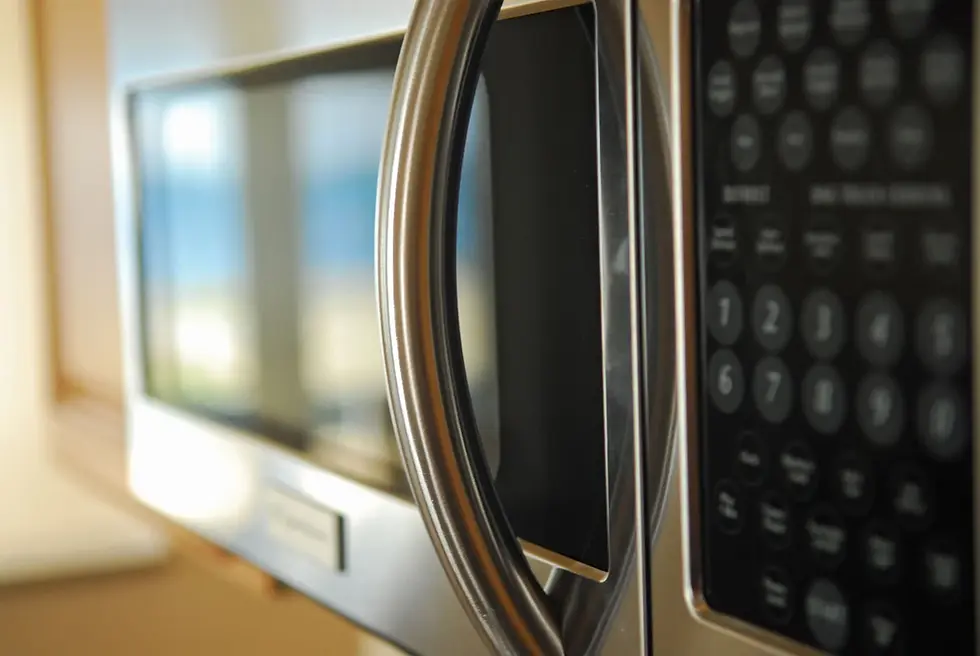Buying vs. Fixing a Broken Microwave
- Better Homes Appliance Repair

- May 25, 2023
- 3 min read
Updated: Jul 23, 2024

Analysis: Buying vs. Fixing a Broken Microwave
Microwaves have become an essential kitchen appliance for many households, providing convenience and quick meal preparation. However, like any electronic device, microwaves can break down or encounter issues over time. When faced with a broken microwave, consumers often find themselves weighing the pros and cons of buying a new one versus fixing the existing appliance. In this analysis, we will explore the advantages and disadvantages of each option.
Buying a New Microwave:
Pros:
Updated Technology: Purchasing a new microwave allows you to benefit from the latest advancements in microwave technology. Newer models may offer improved features such as advanced cooking modes, sensor-based cooking, and enhanced energy efficiency.
Warranty: Most new microwaves come with a warranty, which provides a sense of security in case of future malfunctions. The warranty coverage can range from a few months to several years, depending on the manufacturer and model.
Time-Saving: Buying a new microwave eliminates the need to spend time troubleshooting and diagnosing the problem. It provides an immediate solution and reduces the inconvenience of being without a functioning microwave.
Aesthetics and Customization: Upgrading to a new microwave allows you to choose a model that complements your kitchen decor and meets your specific needs. You can select from a range of designs, sizes, colors, and features to match your preferences.
Cons:
Cost: Buying a new microwave can be more expensive compared to repairing the existing one, especially if the issue with the old microwave is minor. The cost of a new microwave can vary depending on the brand, features, and size, making it a significant investment.
Environmental Impact: Purchasing a new microwave contributes to electronic waste and the overall carbon footprint. The manufacturing, packaging, and transportation of new appliances require resources and energy, which can have negative environmental consequences.
Learning Curve: Adjusting to a new microwave may involve a learning curve, especially if the features and controls differ from your previous appliance. It may take time to become familiar with the new settings and functionalities.
Fixing a Broken Microwave:
Pros:
Cost-Effective: Repairing a broken microwave is often more cost-effective than buying a new one, especially for minor issues or component replacements. Repairing specific parts, such as a faulty door switch or control panel, can be significantly cheaper than purchasing a brand-new appliance.
Familiarity: If you are already accustomed to your microwave's features and settings, repairing it allows you to retain the familiarity and convenience you are accustomed to. You won't need to adjust to a new microwave's functions or user interface.
Environmental Considerations: Repairing a broken microwave helps reduce electronic waste and supports sustainability. By extending the lifespan of your current appliance, you contribute to reducing the overall environmental impact associated with the disposal and manufacturing of new microwaves.
Cons:
Uncertainty: Repairing a broken microwave does not guarantee that it will work flawlessly in the long term. There might be underlying issues or a higher risk of future malfunctions, especially if the appliance is older or has a history of recurring problems.
Time and Inconvenience: Repairing a microwave requires finding a reliable repair service, scheduling an appointment, and waiting for the repairs to be completed. Depending on the availability of parts and the complexity of the issue, the repair process can be time-consuming and may leave you without a microwave for an extended period.
Limited Lifespan: Older microwaves may have reached the end of their expected lifespan, and repairing them may only provide a temporary solution. In such cases, investing in a new microwave may be a more prudent choice to ensure long-term reliability.
Ultimately, the decision between buying a new microwave or fixing a microwave all comes down to price. Give us a call if you need advice in buying new or repairing your microwave.
Better Homes Appliance Repair offers in-home appliance repair service for all major residential appliances including your refrigerator (free-standing and built-in), freezer, dishwasher, dryer, washer, range, oven, stove, ice maker, garbage disposal, built-in coffee maker, and more. We are open Monday through Saturday for service appointments. The service call fee of only $69.95 is always waived with any repair! Let us make you our next happy customer! Call 727-447-0108.
#ApplianceRepairClearwater #ApplianceRepairTampa #ApplianceRepairDunedin #Appliancerepairpalmharbor #appliancerepairtarponsprings #appliancerepairoldsmar #appliancerepairwestchase #appliancerepairlargo #appliancerepairbelleair #appliancerepairpinellas #refrigeratorrepairpalmharbor #refrigeratorrepairdunedin #refrigeratorrepairclearwater #washerrepairclearwater #dryerrepairclearwater #dryerrepairtampa #refrigeratorrepairtampa #washerrepairtampa #appliancerepairbelleair #appliancerepairsafetyharbor



Comments